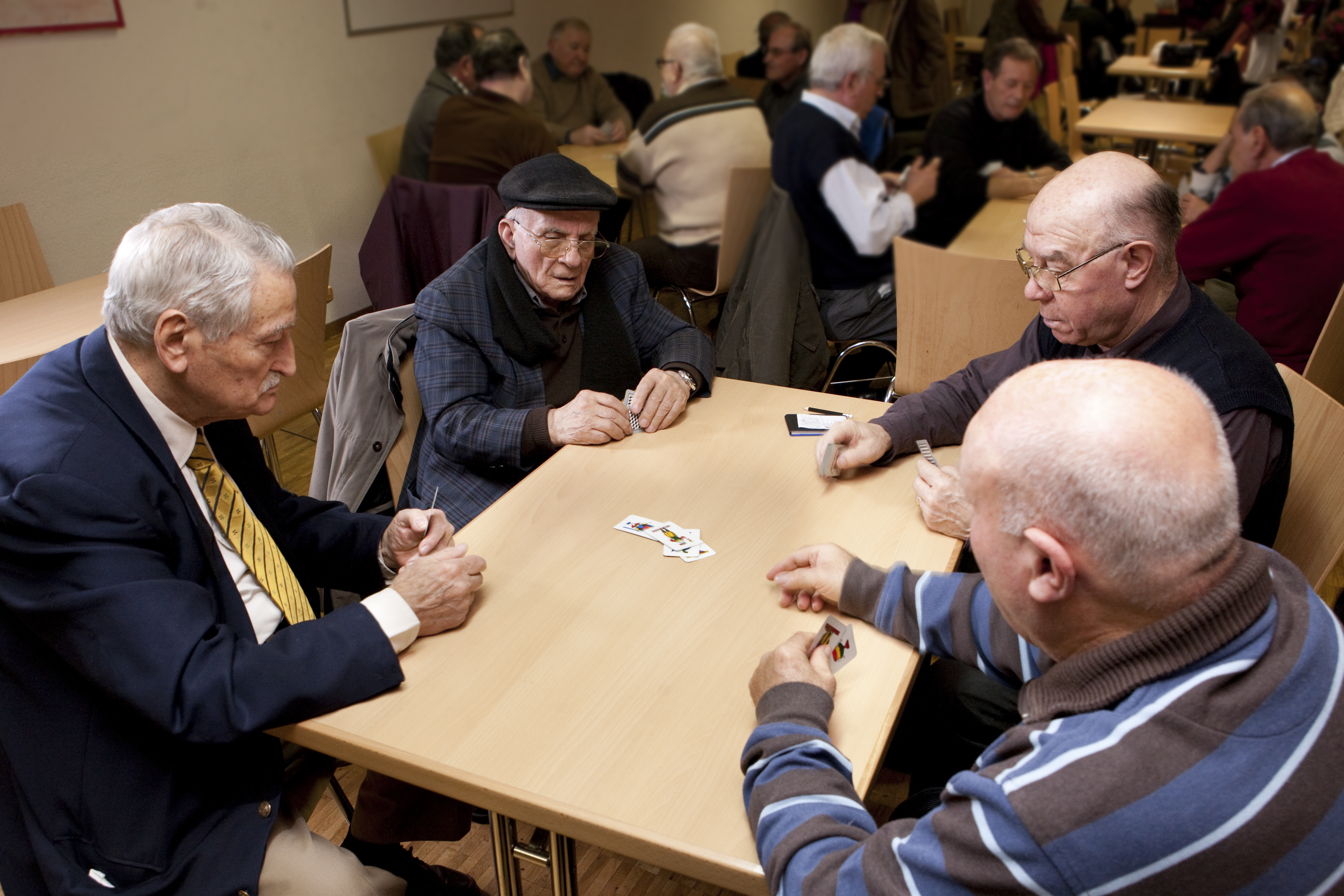Fate of foreign pensioners raises concern

Many foreigners who came to work in Switzerland decades ago are now retiring here, but their health and socio-economic conditions remain a cause for concern.
Today there are more than 130,000 immigrants aged 65 and over living in Switzerland, as well as many others who were granted Swiss citizenship; this figure should rise to 280,000 by 2050.
“We only planned to come to Switzerland for a short while. We wanted to return home before our children started school. The fall of [Spanish leader] Franco completely changed our plans. Now we will stay here forever,” Maria del Carmen Albarran, a Spanish foreign worker, told swissinfo.ch.
Her life mirrors that of thousands of other immigrants, mainly from southern Europe, who moved to Switzerland between the 1950s and 1970s but kept their dream of one day returning to their country of origin.
This growing trend, and the social and health challenges it brings with it were the topics of a conference in Bern, organised by the National Age and Migration Forum.
The gathering took place after Swiss voters in November approved a controversial rightwing initiative aimed at the automatic deportation of foreign criminals.
“We are keen to recall that without major support from Italian, Spanish and Portuguese immigrants we would not enjoy our current levels of well-being. We have to recognise the merits of foreign workers and admit ‘we utilised your services and today we wish to ensure that you can best enjoy the remainder of your life here in Switzerland’,” declared the forum’s president, Christine Egerszegi.
Justice Minister Simonetta Sommaruga echoed her words, while praising immigrants’ work in the health, construction, hotel and restaurant sectors: “Without immigrants Switzerland would be another nation, a poorer nation.”
At risk
Many immigrants who came to Switzerland in the 1950s had tough lives, building homes and apartments, the first motorways or the Gotthard tunnel under the Alps. They arrived apparently in good health after a check-up at the border and were viewed as a workforce rather than as individuals.
Today at the end of their working lives many are tired and torn between wanting to return to their countries of origin and actually being able to do so, as their children and grandchildren have grown up in Switzerland. They also have to cope with financial problems and the fact that they sometimes do not know which of the two countries is their real home.
A comprehensive Statistics Office study published on Monday found that one in seven people in Switzerland are at risk of poverty. Foreigners were among those most at risk.
“Statistics show that the situation of immigrants is worse than that of their Swiss counterparts. Some 25 per cent of immigrants aged between 63-74 are said to be in poor health,” explained Giuseppe Ribaudo, president of Pro Migrante, an association working for the well-being and integration of elderly immigrants.
“This figure is six times higher than for Swiss nationals of the same age.It’s paradoxical as these immigrants were initially healthier than Swiss nationals; only those in good health had access to the Swiss labour market.”
Dignified retirement
Ribaudo explained that there were numerous reasons why their health deteriorated so badly.
“Working and living conditions both had a negative impact on their health, as well as their socio-economic situations. Owing to their low educational levels and limited professional skills, many had physically demanding jobs that were poorly paid, which also had an impact on their pension contributions. The negative experiences of social marginalisation and lack of integration also affected their psychological condition.”
Luigi, a retired worker, pondered: “Is Switzerland still interested in my health, as it was the day I crossed the border to come and work here? Will it allow me to live my final years in a dignified fashion?”
Those who attended the Bern conference hope it will.
“We should provide foreign pensioners with all the necessary information so that they are aware of their rights and receive the allowances they are entitled to,” said Egerszegi.
“Many are unaware that they can ask for additional allowances. What’s more, we have to create conditions so that elderly immigrants can take part of their culture with them if they move into an old people’s home. It a sign of recognition that Switzerland owes them.”
The population of Switzerland currently stands at 7,874,088. The resident foreign population increased by 2.2 per cent last year and is now 1,802,300 (22%).
Almost two-thirds are from member countries of the European Union and the European Free Trade Association. Italians form the largest group of foreigners (293,933), followed by Germans (265,944), Portuguese (213,232), Serbians and Montenegrins (187,554), French (94,814), Turkish (73,275), Spanish (65,687), Macedonians (60,293), Austrians (37,973), Bosnians (37,397), British (37,240), Croatians (35,259), Sri Lankans (30,746) and Americans (20,216).
More than a fifth (20.7 per cent) of the total were born in Switzerland and belong to the second and third generation of foreigners in the country.
Since the Second World War, about two million people have immigrated to Switzerland, or are the descendents of immigrants.
More than 200 million people live outside their countries of birth. One-tenth of Swiss nationals live abroad.
Today around one-third of immigrants of retirement age spend their final days in Switzerland. Another third shuttle back and forth between Switzerland and their country of origin, while the remaining third returns to their place of origin.
In Switzerland ten per cent of citizens over 65 are non-Swiss. Among immigrants over 64, 78 per cent come from neighbouring countries and four per cent come from non-EU states.
People aged at least 64 made up 5.8% of the Swiss population in 1900 and 16.4% in 2007.
The proportion of people aged 80 or older climbed from 0.5% in 1900 to 4.7% in 2007. In contrast, the proportion of under-20s fell from 40.7% to 21.5% in the corresponding time frame.
(Translated by Simon Bradley)

In compliance with the JTI standards
More: SWI swissinfo.ch certified by the Journalism Trust Initiative













You can find an overview of ongoing debates with our journalists here . Please join us!
If you want to start a conversation about a topic raised in this article or want to report factual errors, email us at english@swissinfo.ch.